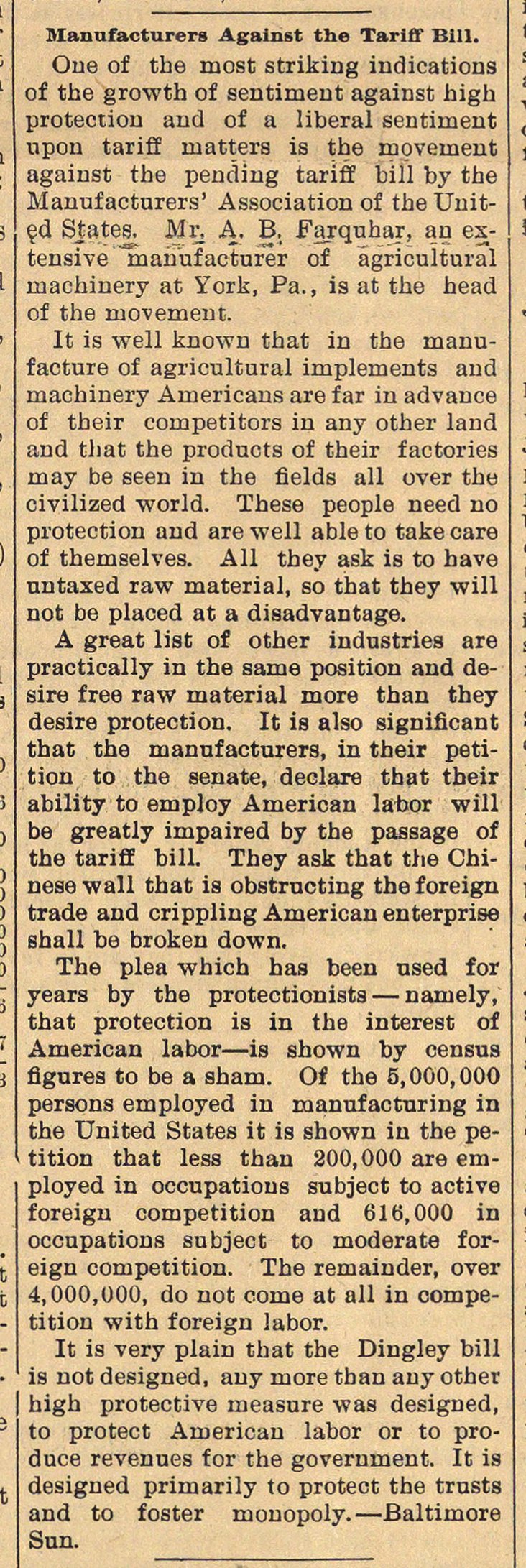Manufacturers Against The Tariff Bill

Oue of the most striking indications of the growth of sentiment against high protection and of a liberal sentiment upon tariff matters is the rnovement against the pending tariff bill by the Manufacturers' Association of the United States. Mr, A. B, Farquhar, an estensive Tnan'ufacturer of agricultural machinery at York, Pa., is at the head of the movement. It is well known that in the manufacture of agricultural implernents and machinery Americans are far in advance of their competitors in any other land and that the producís of their factories may be seen in the flelds all over the civilized world. These people need no protection and are well ableto takecare of themselves. All they ask is to have nntaxed raw material, so that they will not be placed at a disadvantage. A great list of other industries are practically in the same position and desirts free raw material more than they desire protection. It is also significant tbat the manufacturers, in their petition to the sépate, declare that their ability to employ American labor will be greatly impaired by the passage of the tariff bill. They ask that the Chinese wall that is obstrncting the foreign trade and crippling American enterprise shall be broken down. The plea which has been used for years by the protectionists - namely, that protection is in the interest of American labor - is shown by census figures to be a sham. Of the 5,000,000 persons employed in manufacturing in the United States it is shown in the petition that less than 200,000 are employed in occupatious subject to active foreign competition and 616,000 in occupations subject to moderate foreign competition. The remainder, over 4,000,000, do not come at all in competition with foreign labor. It is very plain that the Dingley bill is not designed, auy more tban any other high protective measure was designed, to protect American labor or to produce revenues for the government. It is designed primarily to protect the trusts
Article
Subjects
Ann Arbor Argus
Old News